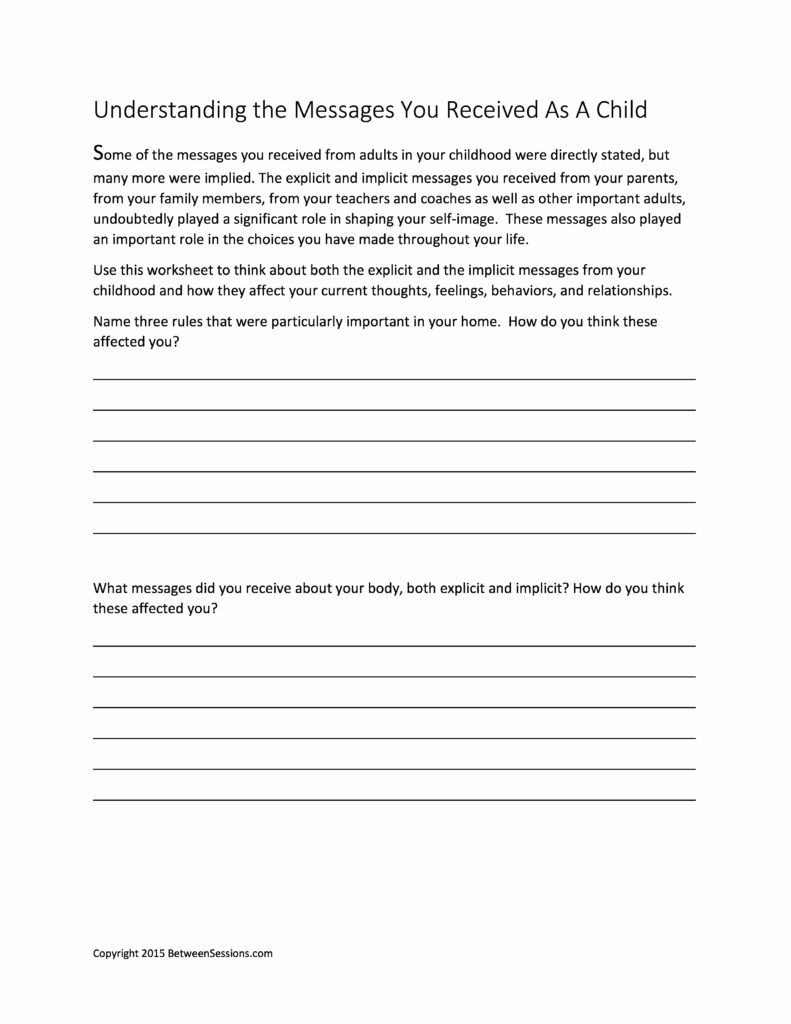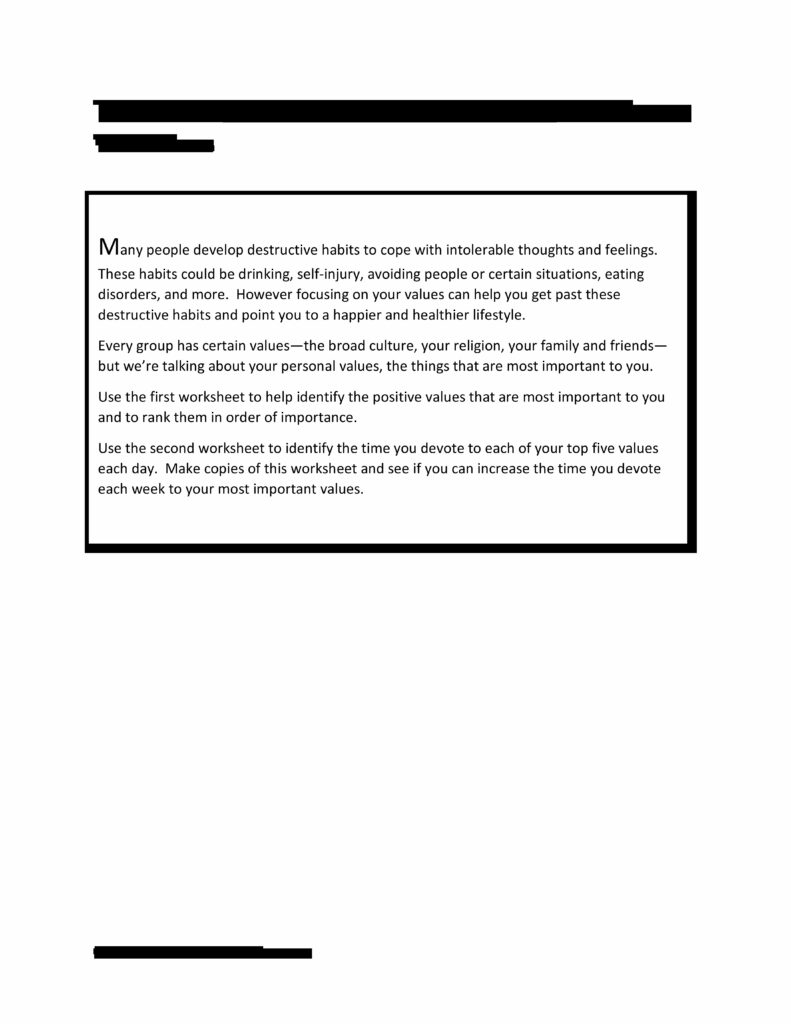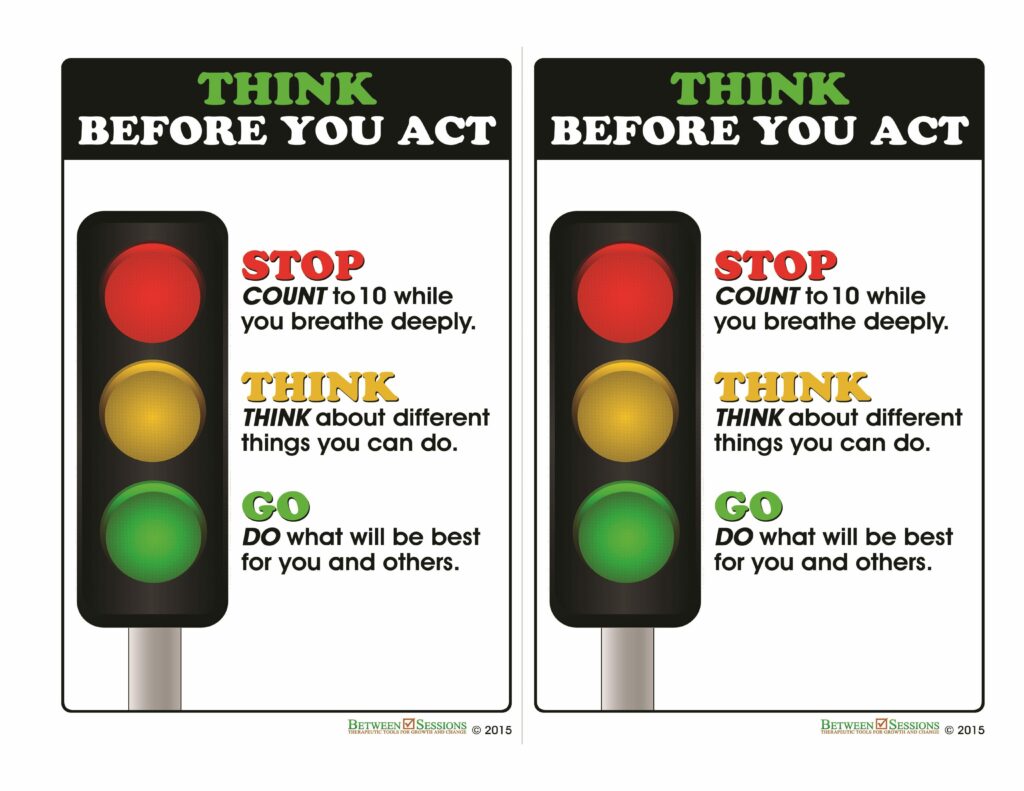This form can be used to assess specific risk factors in clients who have talked about suicide. Form Type: PDF (0515)
Behavior contracts are not just for kids! This worksheet is designed to help people commit to changing specific behaviors that interfere with their lives by breaking down goals into sub-steps, identifying rewards for achieving each step, and sharing the intention to change with supportive individuals. (contracts, behavior change, goal-setting, 0515)
This worksheet is designed to help people examine the explicit and implicit messages they received as children and how these messages affect their self-image and self-efficacy. (0415)
This worksheet is designed to help people think about their emotional strengths and how they can bring these strengths to their current problems. It contains a list of strengths for clients to rate, as well as questions about how significant others perceive the person’s emotional strengths. (0415, ACT, DBT)
Some people spend a lifetime trying to avoid the things that cause upsetting thoughts, feelings, sensations, or memories. This can help them manage their symptoms, but it can simultaneously lead to a very restricted and unhappy life. This worksheet is designed to help people identify the things that upset them, think about the things they do to avoid being upset, and think about what life would be like if they could overcome their symptoms. This worksheet can be used as a prelude to Mindfulness and other techniques that help people accept and overcome their symptomatic behaviors. (CBT, DBT, 0415).
This worksheet helps people deal with difficult thoughts and feelings by having them focus on their core values rather than rely on self-destructive symptoms. There are two forms to complete, one to help people identify their core values and another to help them determine how much time they spend in activities that reflect these values. (0415, ACT)
This form can be used to give people a visual reminder to stop and think before they act. This is particularly helpful for kids and teens, but is a useful technique for adults too. (0315)
Many people have a difficult time controlling their urges and impulses. This can be a particular problem when people are unable to control their self-destructive behaviors, such as excessive drinking, binging, self-injury, and other dangerous behaviors. This worksheet is designed to help people keep track of their urges and develop strategies to get control over self-destructive behaviors. (0315)
Some people are prone to becoming overwhelmed by their emotions. Usually caused by specific triggers, their intolerable level of emotions may then lead to symptoms, such as panic, alcohol or substance abuse, self-injury, or depression. This worksheet is designed to help people develop a set of positive coping techniques that can help them tolerate difficult emotions and refrain from self-defeating behaviors. (addiction, self-injury, impulsivity, prevention, 0315)
This worksheet is designed to help people identify their moods during the day and talk about their feelings to someone else. Copies should be made, and the worksheet should be used for a minimum of seven days. (0315)









